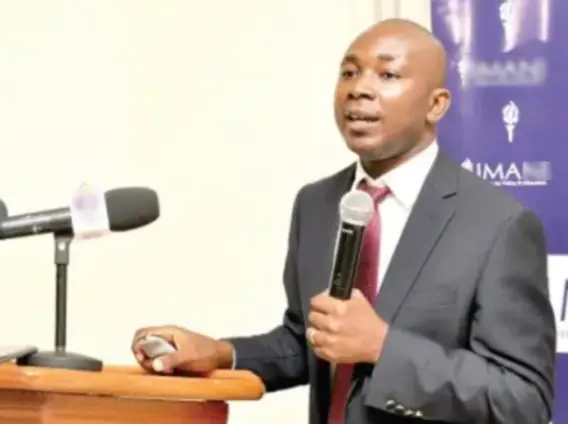In a move to bolster financial security for its citizens, Ghana’s Finance Minister has issued a mandate to the newly inaugurated Board of the National Insurance Commission (NIC): dramatically increase insurance coverage, particularly within the nation’s vast informal and agricultural sectors. Speaking on behalf of Finance Minister Dr. Cassiel Ato Forson, Deputy Minister of Finance, Thomas Nyarko Ampem, underscored the urgency of this mission. With the current insurance penetration rate hovering below 2%, the call is for innovative solutions and decisive action to build a truly inclusive insurance ecosystem. This initiative highlights the critical need to expand insurance accessibility to protect vulnerable populations from economic instability.
Imagine a market trader in Accra, whose livelihood is wiped out overnight by a fire. Or a farmer in the northern region, watching helplessly as floods destroy an entire season’s harvest. For many Ghanaians, the absence of insurance means such disasters can lead to financial ruin. It is this reality that the NIC Board has been tasked to address.
Ghana’s Low Insurance Penetration Rate: Why It Matters
The statistics paint a stark picture: Less than 2% of Ghanaians have insurance coverage. Deputy Minister Ampem stated, “We must think differently, act boldly, and innovate deliberately to build a thriving and inclusive insurance ecosystem.” This low rate leaves a substantial portion of the population exposed to economic shocks, hindering individual prosperity and national progress. The focus is now on identifying and removing the barriers that prevent wider adoption of insurance products.
The Informal Sector: A Key Focus for Insurance Expansion
Nearly 80% of Ghana’s economy is driven by the informal sector. This includes farmers toiling in the fields, artisans crafting their wares, and traders bustling in the markets. To reach this vital segment, insurance products must be tailored to their specific needs and circumstances. As Deputy Minister Ampem articulated, “When a farmer in Garu loses a harvest to floods, or a trader in Makola loses stock to fire, the absence of insurance becomes an economic vulnerability.” The challenge lies in designing affordable, accessible, and relevant insurance options that resonate with these communities.
Addressing Climate Change and Economic Vulnerabilities Through Insurance
Insurance as a Tool for Climate Resilience
Ghana’s leadership role as chair of the Vulnerable Twenty (V20) Group, nations most threatened by climate change, adds another layer of urgency. Insurance, Deputy Minister Ampem emphasized, “must be a tool for climate resilience, a buffer for shocks, and a safeguard for our gains.” By embedding Environmental, Social, and Governance (ESG) principles into insurance operations, Ghana can strengthen its national resilience, support disaster recovery, and safeguard long-term economic stability.
Enforcing Compulsory Insurance Laws
The NIC is also tasked with improving the enforcement of existing compulsory insurance laws, such as those for motor vehicles and commercial properties. The goal is to shift away from purely punitive measures and towards proactive, technology-driven enforcement that ensures compliance across the board.
NIC Board’s Core Priorities and Vision for the Future
Four Core Priorities of the NIC Board
Chairman Christopher Boadi-Mensah has pledged the Board’s unwavering commitment to transformative leadership. The Board’s mandate will be guided by four core priorities: expanding access to insurance nationwide; deepening market penetration and awareness through education and outreach; fostering innovation and digital transformation to modernize service delivery; and ensuring the insurance sector contributes meaningfully to employment, economic growth, and national well-being. He stressed the importance of collaboration and a customer-centric approach to achieve these ambitious goals.
The 24-Hour Economy and the Role of Technology-Enabled Insurance
President’s vision of a “24-Hour Economy” demands a responsive, technology-enabled insurance sector that supports continuous economic activity. This requires leveraging digital platforms to streamline processes, reduce costs, and reach a wider audience.
The Finance Minister’s charge to the NIC Board represents a bold step towards expanding insurance coverage and accessibility across Ghana. By focusing on the informal and agricultural sectors, leveraging technology, and promoting climate resilience, the NIC aims to build a more inclusive and financially secure society. The success of this initiative hinges on the Board’s ability to execute its four core priorities: expanding access, deepening market penetration, fostering innovation, and contributing to economic growth. With collaborative approach and bold leadership, Ghana’s insurance landscape is poised for transformative change, delivering financial security for all its citizens.
Image Source: MYJOYONLINE





















